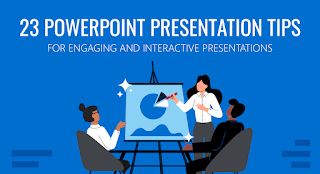Preparing Students for the Digital Age: EdTech and 21st-Century Skills
In today's fast-paced, technology-driven world, it's essential to equip students with the skills they need to thrive in the digital age. Education has evolved significantly over the years, and educational technology (EdTech) plays a pivotal role in preparing students for the challenges and opportunities of the 21st century.
Why 21st-Century Skills Matter: 21st-century skills encompass a broad range of abilities that are crucial for success in the modern world. These skills go beyond traditional academic knowledge and include critical thinking, problem-solving, creativity, digital literacy, communication, collaboration, adaptability, and more. Here's how EdTech contributes to developing these skills:
1. Critical Thinking and Problem-Solving: EdTech provides students with access to a wealth of information and tools that encourage critical thinking and problem-solving. Interactive simulations, virtual labs, and online puzzles challenge students to think analytically and develop solutions to real-world problems.
2. Creativity and Innovation: EdTech platforms often incorporate creative tools such as digital media production, coding platforms, and design software. These tools empower students to express their creativity, fostering innovation and originality.
3. Digital Literacy: In an increasingly digital world, digital literacy is paramount. EdTech helps students navigate digital environments, evaluate online information, and develop responsible online behaviors.
4. Communication and Collaboration: Through online forums, video conferencing, and collaborative software, EdTech enables students to communicate and collaborate with peers worldwide. These experiences teach effective communication and teamwork skills.
5. Adaptability and Learning Agility: EdTech encourages a growth mindset by providing continuous opportunities for learning and adapting to new technologies. Students become more comfortable with change and more resilient in the face of challenges.
FAQs:
Q1. How can educators integrate EdTech into their classrooms effectively?
- Educators can start by identifying the specific needs of their students and selecting EdTech tools that align with their learning objectives. Professional development and training in EdTech use can also be beneficial.
Q2. Are there any risks associated with EdTech in education?
- While EdTech offers numerous benefits, concerns about data privacy, screen time, and equitable access should be addressed. Schools and educators should have clear policies and guidelines in place.
Q3. What are some examples of EdTech tools for developing 21st-century skills?
- Examples include coding platforms like Scratch, creativity tools like Adobe Creative Cloud, collaborative platforms like Google Workspace, and adaptive learning software like Khan Academy.
Conclusion: Educational technology is a powerful tool for preparing students for the digital age by fostering 21st-century skills. As we continue to embrace EdTech in education, students will be better equipped to navigate the challenges and opportunities of our rapidly changing world.




Comments
Post a Comment